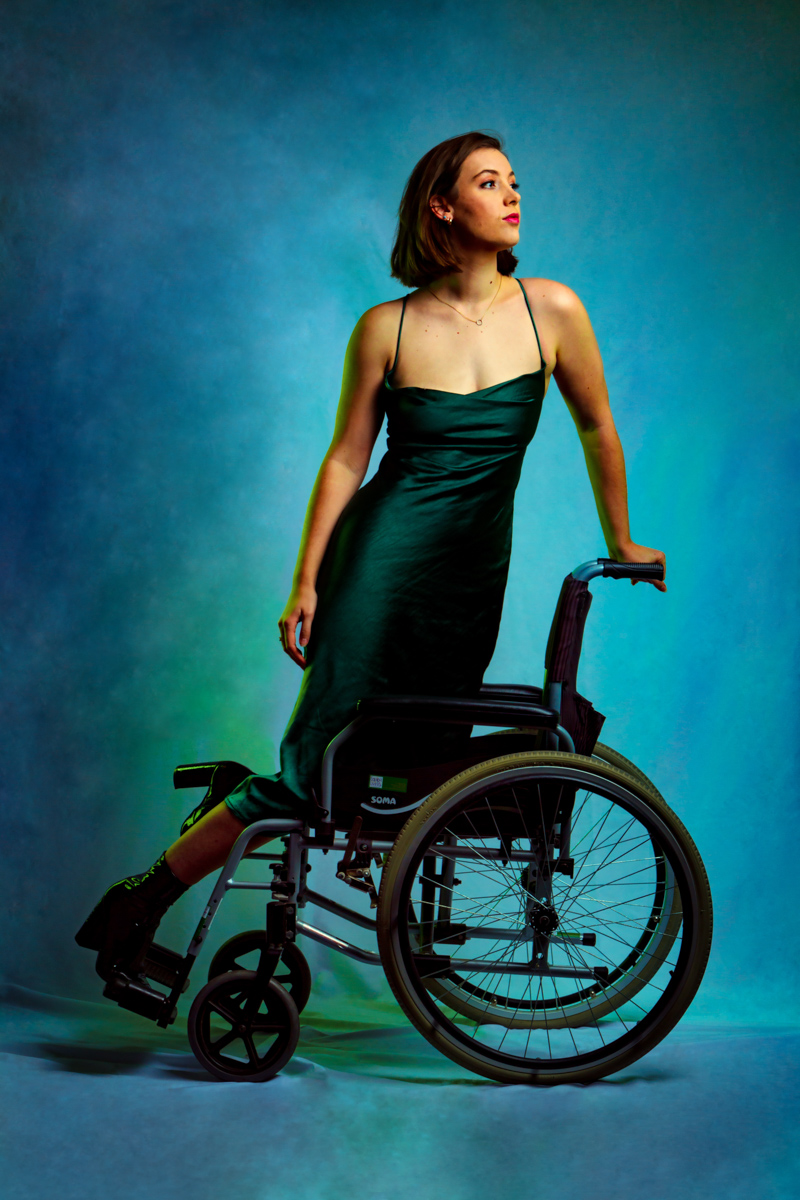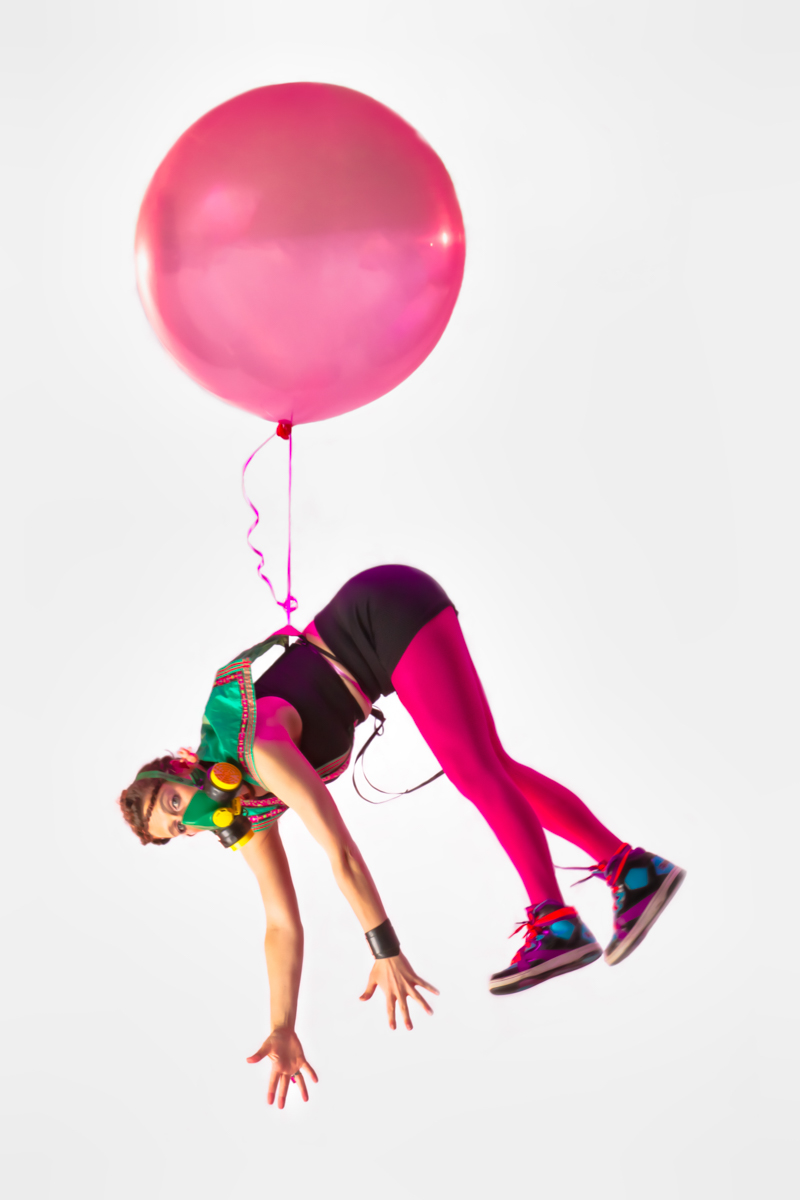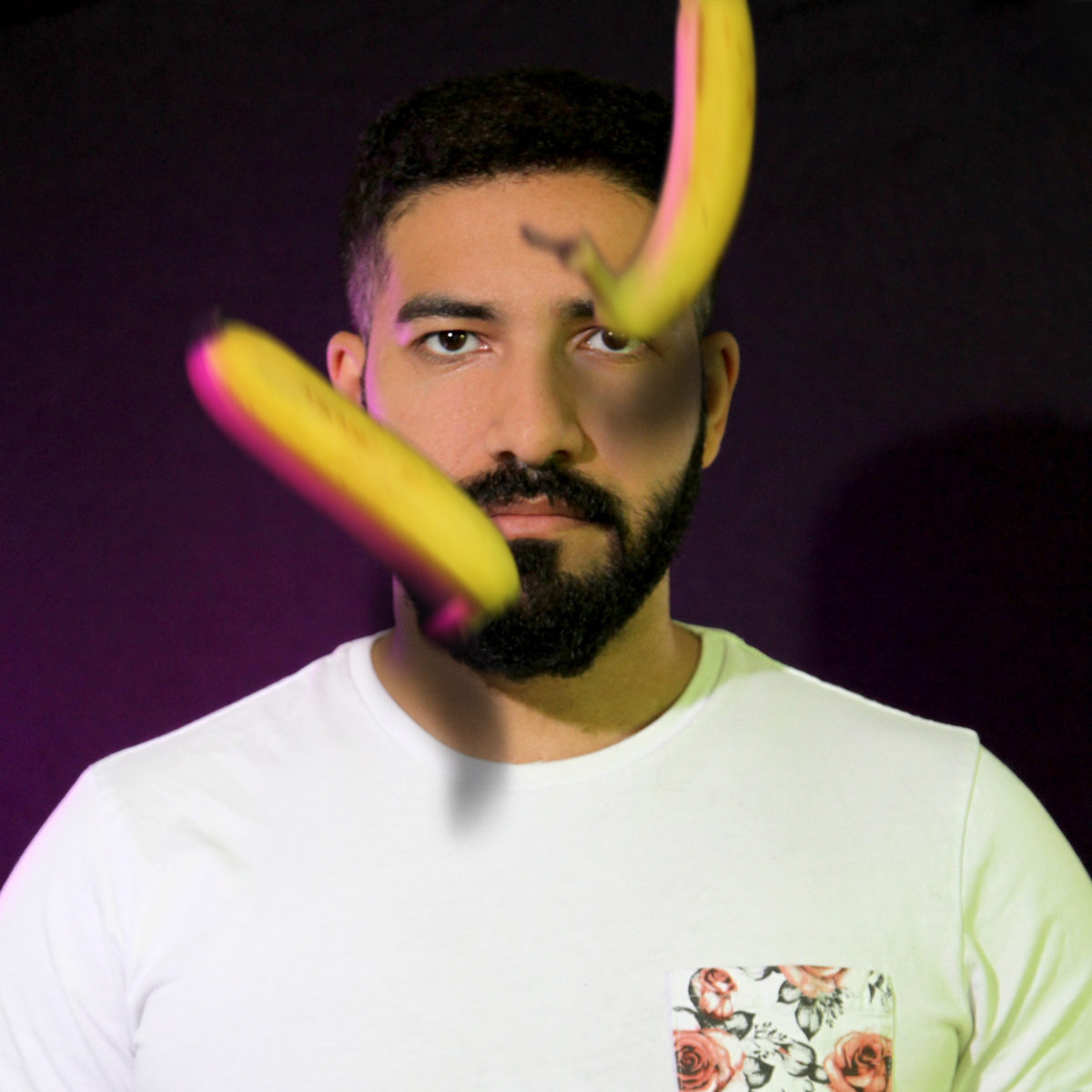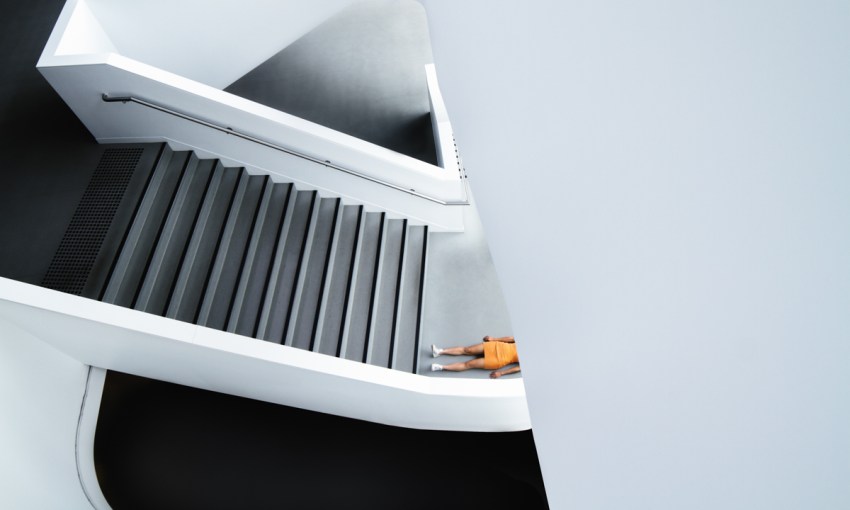In ‘Visible Invisible’, photographer and The Mill Sponsored Studio resident Hussain Alismail captures the experience of some of our city’s disabled artists to see how the world’s fourth most liveable city is not yet fully habitable for everyone.
Showing the invisible with Hussain Alismail
Since touching down in Adelaide in 2019 to study at Flinders University, Saudi Arabian multi-disciplinary visual artist Hussain Alismail has quickly discovered the wealth of collaborative opportunities that our city offers.
In Search of a Good Laugh
8 November—12 December
The Mill
154 Angas Street, Adelaide 5000
Opening event: 6pm Friday, 26 November
More info
While the pandemic halted Hussain’s momentum to a degree, his second half of 2021 has been a flurry, having combined his Sponsored Studio residency at The Mill with participation in Expressions Media and the City of Adelaide’s Vaulting Ambitions incubator program.
For example, a discussion with fellow Vaulting Ambitions disabled actor, playwright and theatremaker Jamila Main about a spellbinding photograph he created, featuring a fellow student prone and decapitated by a Flinders University staircase, sparked an idea for his residency project, Visible Invisible.
“It started from the topic of depression, mental illness and disability, and that ignited the project. Adelaide at the time was rated the fourth most liveable city and we wanted to challenge that concept,” Hussain says.
Hussain, who lives with mental illness, has used Visible Invisible, a photographic project that starkly and breathtakingly conveys the lived experience of disabled artists, to shift the focus from his inner world onto the battles of others.
“Jamila struggles at her workplace (Carclew) going up staircases. She has to drag her wheelchair up to the second floor to use it,” he says.

Jamila Main. This image: Hussain Alismail
For Jamila, who uses the wheelchair to manage the intense chronic pain and exhaustion stemming from their endometriosis and osteoarthritis conditions, attending a venue, whether to see a show or perform in one, involves much preparation, and even the best laid plans can go awry.
“So many businesses and venues make it difficult to find their access information, if they have it at all,” Jamila says.
“Much of my energy is spent googling for images of venues and eventually messaging them on social media or calling them up and asking, ‘Can I come to your venue in my wheelchair, do you have an accessible bathroom, are you step-free?’
“And so often the person on the phone is so confused and has never thought about the access of their business and will just say, ‘Of course we’re accessible’, and then I get there and they are definitely not accessible.”
By highlighting the need for venues to be accessible for the disabled, Jamila hopes that those operating in the artistic realm, from artists to venues, will follow their lead and embed accessibility into all that they do.
“I released the access guides for my shows a few weeks ahead of the shows because I didn’t want anyone doing what I have to do to find out if my show will be accessible to them,” Jamila says.
“I wanted to provide enough information ahead of time so that people who had to search for it can quickly see if they could access my show.”
James Murphy is currently Writer-in-Residence at The Mill.
This article was published in partnership with The Mill as part of its Writer-in-Residence program.
For more information on the program, see here.
Each of Hussain’s Visible Invisible photos possesses its own stylistic and thematic character, which not only reflects the diversity of disability access needs but also that the same disability may manifest differently in each individual.
Importantly, the images capture that underneath the disability is a human with the same hopes, dreams and inherent needs as everyone else.
While Hussain’s shoot with Jamila addressed the challenges posed by the physical structures of our city, in his playful shoot with award winning physical theatre performer and newly arrived Adelaide resident Andi Snelling, the emphasis is placed upon the invisible environmental exposures that can trigger Andi’s Mast Cell Activation Syndrome – a physical hypersensitivity that is comorbid with her Lyme Disease.
“Whatever she eats, she gets this big bulge in her stomach, even if she just drinks water. We wanted to express that by choosing a balloon,” Hussain explains.

Andi Snelling. This image: Hussain Alismail
Like Jamila, Andi often never knows what will face her when she walks into a new venue.
“Access can often focus upon wheelchair access, and that should absolutely be a focus, but it can also neglect the many other forms of access that are required,” Andi says. “For me, a big issue that I have is a lot of environmental sensitivities. It can be lighting, but more so any old building that contains traces of dust or mould can be really difficult for me to navigate.”
As a regular on the festival scene, particles floating in the air aren’t the only irritant Andi needs to be aware of.
“To find venues for my shows, one of my access requirements is not being able to necessarily fulfil six or seven performances a week, so an access need for me is, can I please just do three shows a week or four shows a week?” Andi says.
“I’ve just had venues say, ‘No, you have to take up all the slots or we just can’t give you the slot.’ This year when I performed Happy Go Wrong at the Adelaide Fringe, I struggled to find a venue because of that exact reason, which was quite shocking.
“In the end we had to pay for venue hire for the entire week, even though we didn’t use it for the whole week.”

Hussain Alismail
When Visible Invisible goes on display at The Mill as part of his broader exhibition, In Search Of A Good Laugh, from Monday, 8 November, Hussain hopes stories like Jamila and Andi’s, as well as those of burlesque performer Eva del Rossa, DJ Trip, cabaret artist Nicole O’Rielley (Frankly), Expressions Media’s Libby Trainor Parker and more, will ignite conversations and develop empathy and understanding.
As for Hussain’s mental health journey, sharing spaces like The Mill and Vault 134 has helped the artist forge connections.
“I’m very introverted. I don’t have a lot of friends at uni. This opportunity allowed me to go meet new people,” he says.
In Search of A Good Laugh opens on Monday, 8 November at The Mill, with a joint opening night alongside Frances Cohen happening on Friday, 26 November.




